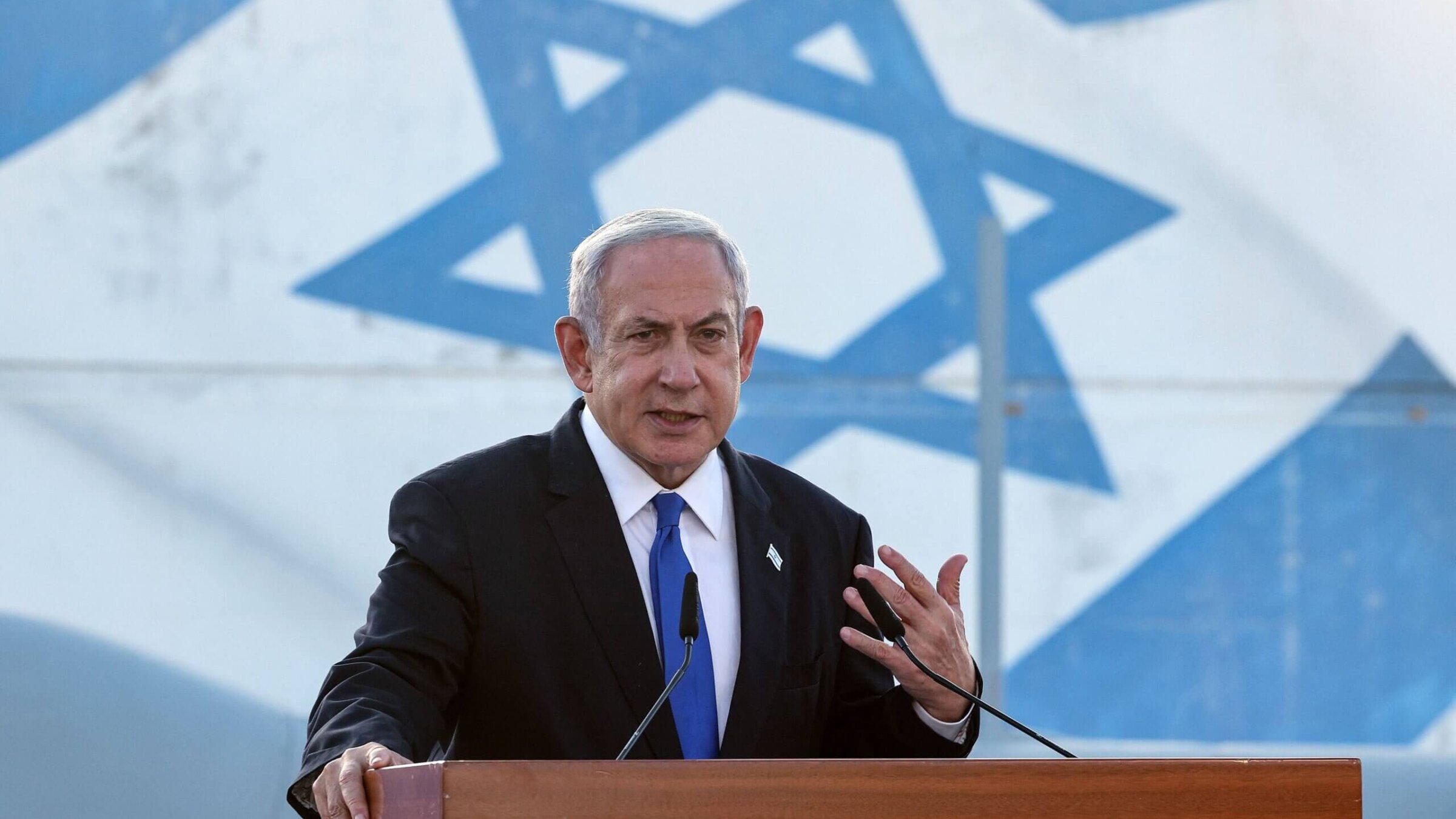Dueling activists clash at public Orthodox Yom Kippur service in Tel Aviv
This year, Israel’s Supreme Court ruled that a gender-segregated prayer service could not take place in Dizengoff Square

דער ישׂראלדיקער פּרעמיער בנימין נתניהו Photo by Getty Images
(JTA) — Multiple dimensions of Israel’s ongoing civil strife came to a head on the holiest day of the Jewish calendar, as secular activists shut down an Orthodox Yom Kippur service in the center of Tel Aviv that had been barred by the Supreme Court.
On Yom Kippur and in the hours afterward, Israeli social media accounts filled with videos of Orthodox worshippers and secular protesters shouting epithets at each other — including several instances, from both sides, of the word “Nazi.” A far-right protest is planned on Thursday, promising further fighting, and Israel’s most senior politicians have released dueling statements about the clash.
Israeli President Isaac Herzog lamented that the country appears to be torn apart again half a century after the 1973 Yom Kippur War.
“I know that I speak for the absolute majority of Israeli citizens when I express deep sorrow and shock at the sight of our own people fighting one another on a day that has always been a symbol of unity,” Herzog said at a memorial ceremony for the war.
Israeli Prime Minister Benjamin Netanyahu, by contrast, took a side in the dispute, squarely blaming “extremists on the left” for the disturbance. And his political opponents took the opposite view: Benny Gantz, a centrist leader, called Netanyahu “the biggest hatemonger.”
The fighting surrounded an Orthodox Kol Nidre service on Sunday evening in Tel Aviv’s Dizengoff Square — a religious event that has taken place annually for several years in the heart of Israel’s largely secular metropolis. This year, Israel’s Supreme Court ruled that the organizers of the service could not erect a divider to separate between men and women — known as a mechitzah — in a public square.
But the organizing group, known as Rosh Yehudi, defied the order and proceeded with the prayer service anyway, setting up a makeshift divider made of Israeli flags. Secular protesters — including many from the mass protest movement that has mounted weekly demonstrations against the right-wing government all year — also showed up to rally against the event. The protesters chanted “Shame,” a cry that has become a mainstay of the antigovernment protests, and the prayer service came to a halt. A similar clash, with a similar result, occurred on Monday.
The incident has become a Rorschach test in Israel, which has grown deeply divided over Netanyahu’s effort to weaken the Supreme Court and has also erupted recently over increasing efforts to impose Orthodox standards of dress and conduct on women in public spaces. The Yom Kippur event was a confluence of the two: a moment when an Orthodox group ignored a Supreme Court decision and established a gender-segregated space in the central square of a largely non-Orthodox city.
For Netanyahu and others on the right, the incident is further evidence that Israel’s Supreme Court functions as a left-wing activist body that is out of touch with Israel’s population, and that the protest movement has resorted to violent tactics in its antipathy toward traditionally observant Jews.
This article originally appeared on JTA.org.
A message from our CEO & publisher Rachel Fishman Feddersen
I hope you appreciated this article. Before you go, I’d like to ask you to please support the Forward’s award-winning, nonprofit journalism during this critical time.
We’ve set a goal to raise $260,000 by December 31. That’s an ambitious goal, but one that will give us the resources we need to invest in the high quality news, opinion, analysis and cultural coverage that isn’t available anywhere else.
If you feel inspired to make an impact, now is the time to give something back. Join us as a member at your most generous level.
— Rachel Fishman Feddersen, Publisher and CEO